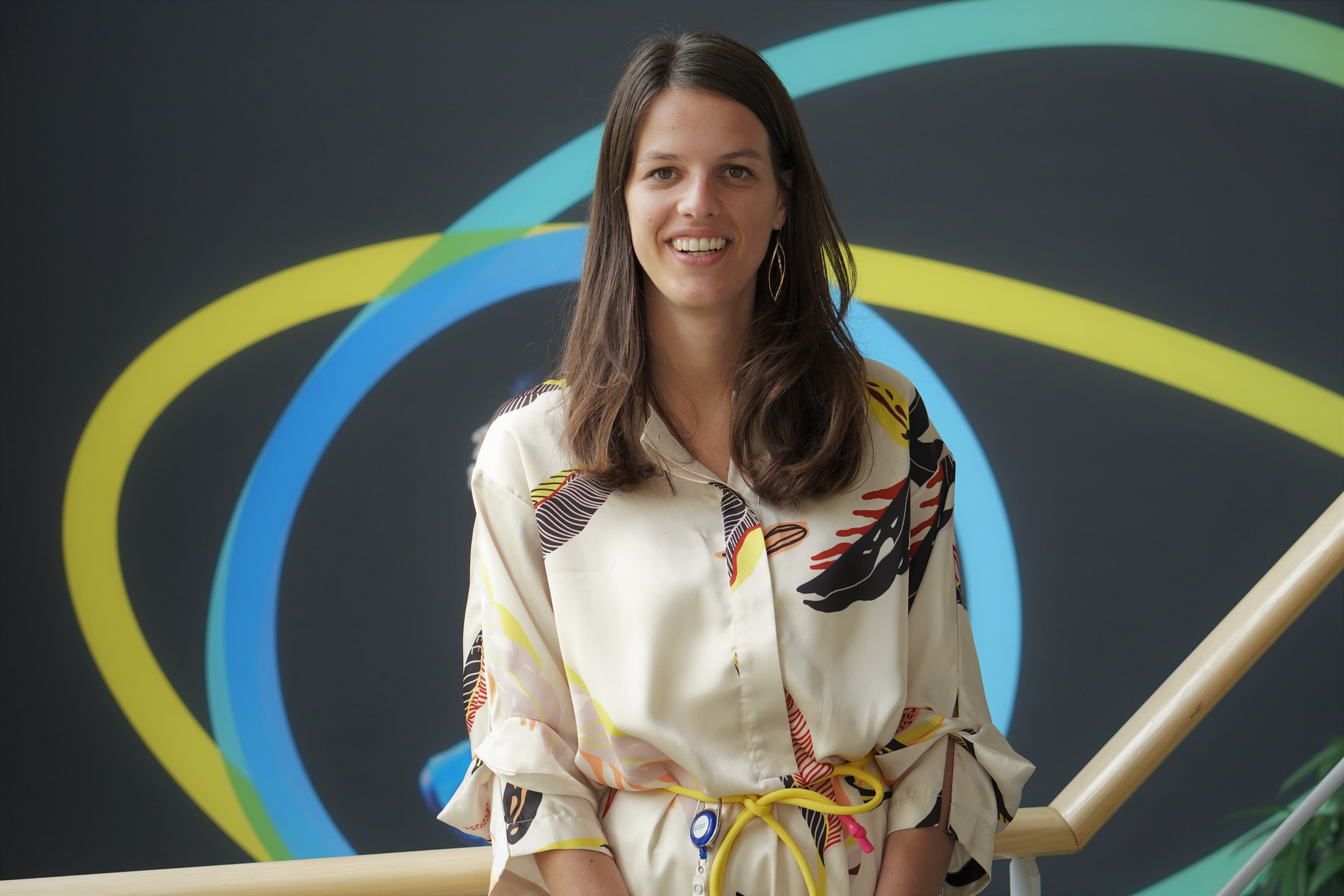“During my Bachelor's programme in Pharmaceutical Sciences, I quickly discovered that just doing research didn’t really suit me. My part-time job and my year on the board of a study association made me realise that I found the business side very interesting, especially in relation to medical knowledge. That is why I did a minor in SBI during my Bachelor's programme. I remember clearly that I found the course on product innovation very difficult—not that it was difficult as a subject, but because I had to learn to think in a different way and that was a challenge for me.”
“In the SBI minor, I learned how I could turn scientific knowledge into an innovation that is appropriate for the market. The combination of two distinct disciplines was very valuable. That’s why I decided to do the Master's programme for both disciplines. I opted for SBI’s Life & Health Sciences specialisation because I wanted to work for a pharmaceutical company. The ‘science’ courses in this specialisation included compulsory courses from the Master’s programme in Pharmaceutical Sciences. During my internship at Boehringer Ingelheim, I realised that I had gained a lot of knowledge and even came up with new insights and models that they could put to good use. I still work there now, as a Market Access Manager.”
“I had a fantastic time studying at VU Amsterdam. In the second year of my Bachelor's programme, I was on the board of the Pharmaceutical Sciences study association. During the SBI minor, I also became a member of that study association Subliem and later became chair of the Master Committee. We often invited guest speakers and discussed current topics within the SBI specialisations Energy & Sustainability and Life & Health Sciences. For the Master's programme in Pharmaceutical Sciences, I did six months of pharmaceutical research in a lab in France. That really made my time at university complete.”
“My SBI studies are still useful in my current work. When it comes to medicines, there is more involved than just the effectiveness of the drug. It is also about safety, ease of use for the patient, and the economic and social aspects. In my job, it is important to bring all this knowledge and context together and to turn it into a value proposition that’s appropriate for the Dutch market, so that the medicine meets the needs of various stakeholders within healthcare. In this way, we try to ensure that the medicine is covered by insurance in the Netherlands as quickly as possible, that it is incorporated into the guidelines and protocols, and that patients quickly get access to new innovative medicines.”
“My advice for future SBI students is to figure out what they like, what they want to work towards, and to start early with deciding how they want to set up the Master's programme. This way, you can create a programme that is a good fit for you and that also gives you the right knowledge and experience you need for your dream job.”
Karlijn Wammes, Market Access Manager at Boehringer Ingelheim
After getting a Bachelor's degree in Pharmaceutical Sciences, in 2017 Karlijn Wammes earned a Master's degree in Science, Business and Innovation (SBI) as well as a Master's degree in Pharmaceutical Sciences at VU Amsterdam. She now works as a Market Access Manager at the pharmaceutical company Boehringer Ingelheim.

“I learned how I could turn scientific knowledge into an innovation that is appropriate for the market.”